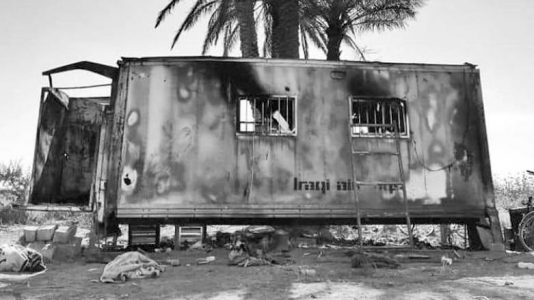
The central provinces in Iraq witness another series of Islamic State attacks
The so-called Islamic State launched a new series of attacks in three central provinces of Iraq as part of its continuing assaults on security forces, marking its resurgence.
Since the start of the Islamic month of Ramadan, the self-proclaimed Islamic State launched a series of attacks in the central provinces of Diyala, Salahuddin, Kirkuk, and Anbar, resulting in deaths and injuries to security forces including Popular Mobilization Forces (PMF), its tribal affiliates, and Iraqi Army and Police.
Iraq has witnessed a spike in the number of terrorist activities by the group since early April such as improvised explosive devices (IEDs), mortar and rocket attacks, and the targeting of police patrols.
The central province of Salahuddin witnessed its deadliest attack on Saturday in an ambushed Islamic State attack on PMF positions that left 10 dead, marking the group’s resurgence after its territorial defeat in 2017.
On Monday night, three tribal PMF militants along with one federal police were killed in an IED explosion the Islamic State planted in the Rashad district, southwest of Kirkuk, according to security sources.
In parallel, the Islamic State also attacked an Iraqi Army unit in Soran village, located between Mosul and Kirkuk province, resulting in unknown numbers of causalities, sources reported.
On Tuesday, the Iraqi army’s Diyala Operations Command in coordination with the PMF forces launched a sweep operation to hunt down Islamic State remnants in the Mukaishefa area in the province, which witnessed a deadly attack on the PMF earlier this week, according to Iraqi media’s security cell.
Security forces repelled an attempt by the group to attack a security forces’ checkpoint in Baquba district in Diyala province, sources reported.
Top Kurdistan Region officials and Peshmerga commanders have issued repeated warnings to both the Iraqi government and the international community that the Islamic State remains active and capable of reasserting itself to continue its campaign of violence.
A “security vacuum,” as KRG officials have described it, has made the disputed areas in Diyala, Salahuddin, and Kirkuk more vulnerable to Islamic State attacks.
Source: Kurdistan 24





